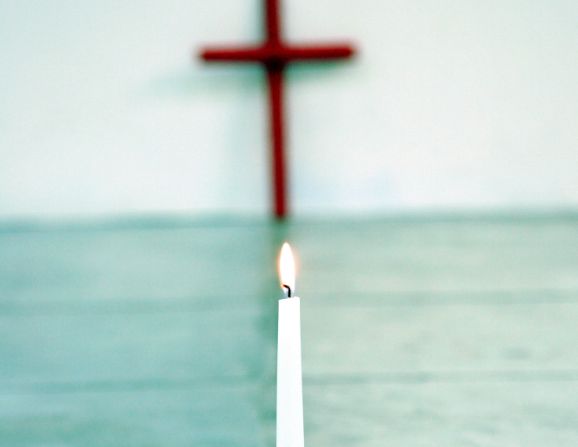Euthanasia will not be legalized in Latvia in the foreseeable future

Faced with a morality based on Christian values and the liberal belief that human life belongs to the person, the majority of the Saeima rejected the initiative signed by more than 10 thousand citizens to legalize euthanasia. Consequently, at the political level, the debate on this issue has been postponed indefinitely.
"Euthanasia is intentionally causing the death of another person to alleviate their inevitable and irreversible pain and suffering. It is used when a terminally ill person suffers from unbearable pain or is in deep unconsciousness with no hope of recovery, and it enables a person to end their life with dignity without becoming a burden to themselves and others,” says the author of the initiative Pēteris Buks.
After receiving accusations about the representatives of traditional religious denominations being involved in the decision-making, the Saeima Mandate, Ethics and Submissions Committee decided not to take this initiative further. On Thursday, this decision provoked a wide-ranging debate in parliament and also faced some echoes of personal tragedies.
Solve problems, not ignore them
"I have experienced when a person close to me passed on in this torturous way. To watch how he couldn't walk at the beginning, then could only lie in bed and then, after a while, he couldn't even lift a cup to his mouth, he couldn't eat and then he couldn't do many other things [...] I clearly know that if I were in such a situation, I would very much like to have such an opportunity to stop this, to end my own and my loved ones' suffering from it all. And this is just a normal, humane option,"
said Ivars Zariņš, representing the social democratic Harmony (Saskaņa), calling for the initiative to be passed for further consideration so that at least an in-depth discussion on the issue could begin.
The fact that even in the responsible committee the initiative had not been properly discussed before it was rejected was pointed out by the liberal Development/For! (Attīstībai/Par!) member Marija Golubeva, who believes that to ensure a quality discussion at the committee meeting, the presence of bioethics experts was also necessary, but it was not provided.
Andrejs Judins, representing the New Unity (Jaunā Vienotība), which does not have a unanimous opinion on the issue of euthanasia, also urged the parliament not to avoid the difficult discussion and to make it possible by passing the initiative further to the committee.
"Things are hard for some people. And I don't think we should tell them that, yes, we will legalize euthanasia in the near future, but we have been elected to work on solving the problems. There are 100 MPs here, not ostriches, who can simply do nothing, hide their head in the sand and ignore the problem. The problem exists, and it would only be logical if we in the Saeima talked about the issue. Instead, I keep hearing the opinion that we do not need to talk because everything is clear to everyone. Well, it clearly isn't!” A. Judins tried to persuade his colleagues not to avoid solving the problem.
In the speeches of the supporters of the further advancement of the initiative, it was repeatedly criticized that the responsible committee also partially bases its decision on the opinions of religious denominations, even though the state is separated from the church.
The moral and ethical burden on physicians
On the other hand, those who did not support the further progress of the initiative reminded that the Constitution also invokes Christian values and the so-called Western civilization is built upon Christian values.
Leaving aside the religious aspects of the issue, the head of the commission, Janīna Kursīte-Pakule, representing the National Alliance (Nacionālā apvienība), also pointed out the ethical aspects of the work of doctors performing euthanasia procedures.
"The question arises - what does the patient's desire to die demand from the medical staff. If the Hippocratic Oath to "not give anybody deadly medicine" seems inapplicable and outdated to the public today, it is important to understand the extent to which medical practitioners are actually psychologically prepared to kill a patient," defending the decision of the committee, said its head.
Aldis Gobzems, who does not belong to any Saeima faction, also pointed out the incompatibility of the doctor's oath with euthanasia, who believes that “A person must not deprive himself of what he has not given to himself. Human life arises elusively, it has a special meaning and path. No doctor gives life to a person, it arises mystically. As mystical as when a person passes on. And we have no right as human beings to interfere in this process, which is our path."
The issue of legalization of euthanasia in Latvia became topical at the time (2016-2017) when the public donated the necessary amount to fulfill the last wish of the terminally ill Viesturs Bundža so he could go to Switzerland, which is known as a destination for euthanasia tourism.
At that time, the Ministry of Health stated that the legalization of euthanasia in Latvia was not on the ministry's agenda. The then Minister of Health Guntis Belēvičs (ZZS) said that this is a political decision and Latvia is not ready for it yet.
*****
Be the first to read interesting news from Latvia and the world by joining our Telegram and Signal channels.
